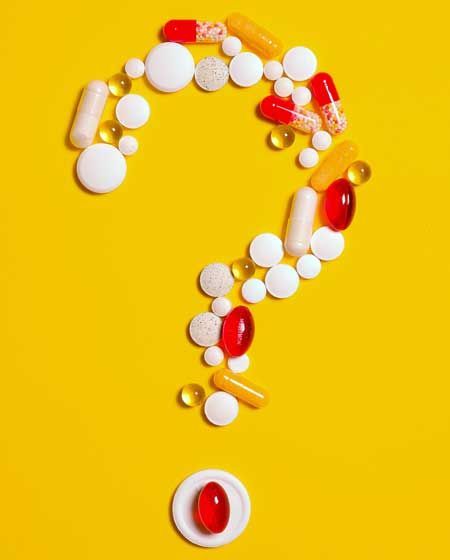Flying or Marijuana: Pick ONE
No excuses: Don’t use marijuana, CBD products, or recreational drugs if you want to be a pilot

You should already know not to drink alcohol before driving or flying. Well, have you considered the implications of that hemp-infused energy drink?
The DOT and FAA warn pilots against using CBD and hemp products, which can contain detectable amounts of THC, the psychoactive component of marijuana. These are being added to everything from coffee and salads to wellness products — even mascara! AVOID THEM ALL.
This article answers your questions about drugs and FAA pilot certification, to help you understand the serious consequences of using marijuana, recreational drugs, and seemingly harmless CBD or hemp products.
“I didn’t realize” is not an acceptable excuse. It is ethically and legally wrong to jeopardize people’s lives. Educating yourself can save your pilot career, too.
FREQUENTLY ASKED QUESTIONS
Does the FAA physical exam include drug testing?
Not normally. The urine sample you provide during the physical exam for FAA medical certification is tested for signs of diabetes and kidney disease. The urine is not tested for drugs, and no blood sample is taken.
If the FAA has flagged your medical application for further investigation, however, it could include drug testing in some cases.
Why can’t I use marijuana? It’s legal where I live.
Under U.S. federal law, marijuana is a Schedule I drug — not legal. But even if marijuana were to be legalized at the federal level, it isn’t legal for pilots, and won't ever be, because it causes impairment and persists in the body. If you are in an aircraft accident, your use of marijuana or other controlled substances could be discovered and cause you to be assigned liability.
The DOT has warned workers in safety-sensitive roles like pilots against the use of marijuana for medical or recreational purposes.
How will the FAA find out?
Don't try to hide your use of prohibited drugs – you are endangering people’s lives, in addition to putting your flying career at risk. And the FAA will find out eventually.
First, the FAA routinely tests the blood and tissues of fatally injured pilots for hundreds of compounds, including alcohol, illicit drugs, and prescription and over-the-counter medications. As an aviation accident investigator told me, only a little facetiously, “They will not only find out that you took drugs or alcohol – they’ll know what you ate for breakfast last Thursday”.
Second, airline pilots and other professional pilots carrying passengers for hire participate in a federally mandated FAA/DOT drug and alcohol testing program, which includes pre-employment, random, post-accident, and probable cause testing.
Third, if the FAA has reasonable cause to believe you flew or tried to fly as a pilot while using any drug that affects a person's faculties in any way contrary to safety, they can request a drug test.
What drugs are detected in the FAA/DOT drug test?
The FAA/DOT initial screening drug test checks for amphetamines, cocaine, marijuana (THC), opioids, and phencyclidine (PCP). A positive test result in initial screening leads to a more precise confirmation test to detect specific compounds or metabolites that confirm drug use.
These tests can detect metabolites of THC and THCA, indicating that the person ingested and metabolized a cannabis-derived substance, as well as detecting Ecstasy or Molly (MDA and MDMA) and methamphetamine, and the opioids / opiates codeine, heroin, hydrocodone, hydromorphone, morphine, oxycodone, and oxymorphone (found in OxyContin®, Percodan®, Percocet®, Vicodin®, Lortab®, Norco®, Dilaudid®, Exalgo®, for example). Fentanyl is proposed to be added.
But but but… CBD and hemp products don’t contain THC!
It is true that THC is the psychoactive compound of marijuana and not legal for pilots, while cannabidiol or CBD is a harmless derivative and completely legal for everyone. However, the DOT has issued a warning against using CBD and hemp products because their manufacture is not well-monitored for purity and potency.
The former FAA Federal Air Surgeon said: “Although most CBD products claim to have under 0.3-percent THC, they could contain high enough levels of THC to make a drug test positive. Use of CBD oil is not accepted as an affirmative defense against a positive drug test.”
Also note that the FAA/DOT drug testing program tests for THC metabolites. If you use a CBD or hemp product such that your body produces these metabolites and you get tested, it sucks to be you.
What about second-hand smoke from other people smoking weed?
This is a not a defense against a positive drug test.
What about mushrooms? ayahuasca?
Beyond the substances listed previously, mind-altering drugs like DMT (in ayahuasca), ketamine, lysergic acid diethylamide (LSD), and psilocybin (in “magic” mushrooms) are illegal Schedule I & II drugs and not allowed for use by pilots. While these may not be part of the regular FAA/DOT drug testing program, they can be detected through supplemental testing.
Can I refuse to take a drug test?
Sure, but the refusal will be reported to the FAA and entered into the FAA Pilot Records Database. It represents a violation of FARs that could result in the revocation of your pilot certificates. It may be grounds for termination from employment and block access to unemployment benefits.
What happens if I fail a drug test?
After a verified positive drug test, you will be removed from flight duty, reported to the FAA, and it will be entered into the FAA Pilot Records Database. You will be given a list of substance abuse professionals. Keep reading.
What about a drug arrest or conviction?
The FAA takes these very seriously. You can’t apply for a pilot certificate for up to one year after a felony conviction for a drug or alcohol offense. If you are already a pilot, the FAA may suspend or revoke your pilot certificate for up to one year. There are ramifications for motor vehicle DUI / DWI driving convictions as well. Keep reading!
Is my flying career over?
No, it doesn’t have to be. If you get help and stick with a treatment and monitoring program, you can return to flying (more on this, below). If you later fail a drug test a second time, however, you will be permanently barred from flying for any FAA-regulated employer.
What does treatment look like?
After an evaluation, a substance abuse professional can make recommendations that include the HIMS program, testing and evaluation by a psychiatrist or neuropsychologist, abstinence and monitoring programs, inpatient or outpatient treatment, and/or group or individual therapy. This can be part of your return to working as a pilot. See below.
What is HIMS?
HIMS is an occupational substance abuse treatment program, specific to pilots, that coordinates the identification, treatment, and return-to-work process for affected aviators. It is an industry-wide effort in which managers, pilots, health care professionals, and the FAA work together to preserve careers and enhance air safety.
Comprehensive information is available on the HIMS website. But don’t let it reach the point of a failed drug or alcohol test or a DUI arrest – click the GET HELP NOW button for a speedy personal response.
Read about a pilot’s recovery from alcohol abuse and return to airline flying through the HIMS program.
Make good choices! Assiduously guard the lives entrusted to you, and your pilot career.
© 2023 Jenny Beatty. All Rights Reserved.
Photo credit: Kindel Media









